Guest interview by Michael Reed. Originally commissioned by Strange Horizons, but it was not posted on that site. Strange Horizons replied, “Although some sections, notably on the author’s local inspirations and self-publishing, stand out as offering a fresh perspective, it’s a problem for our purposes that the interviewee doesn’t seem to be particularly active in new fiction projects right now.”
Read Self-Publishing Review’s review of Darryl Sloan’s Chion.
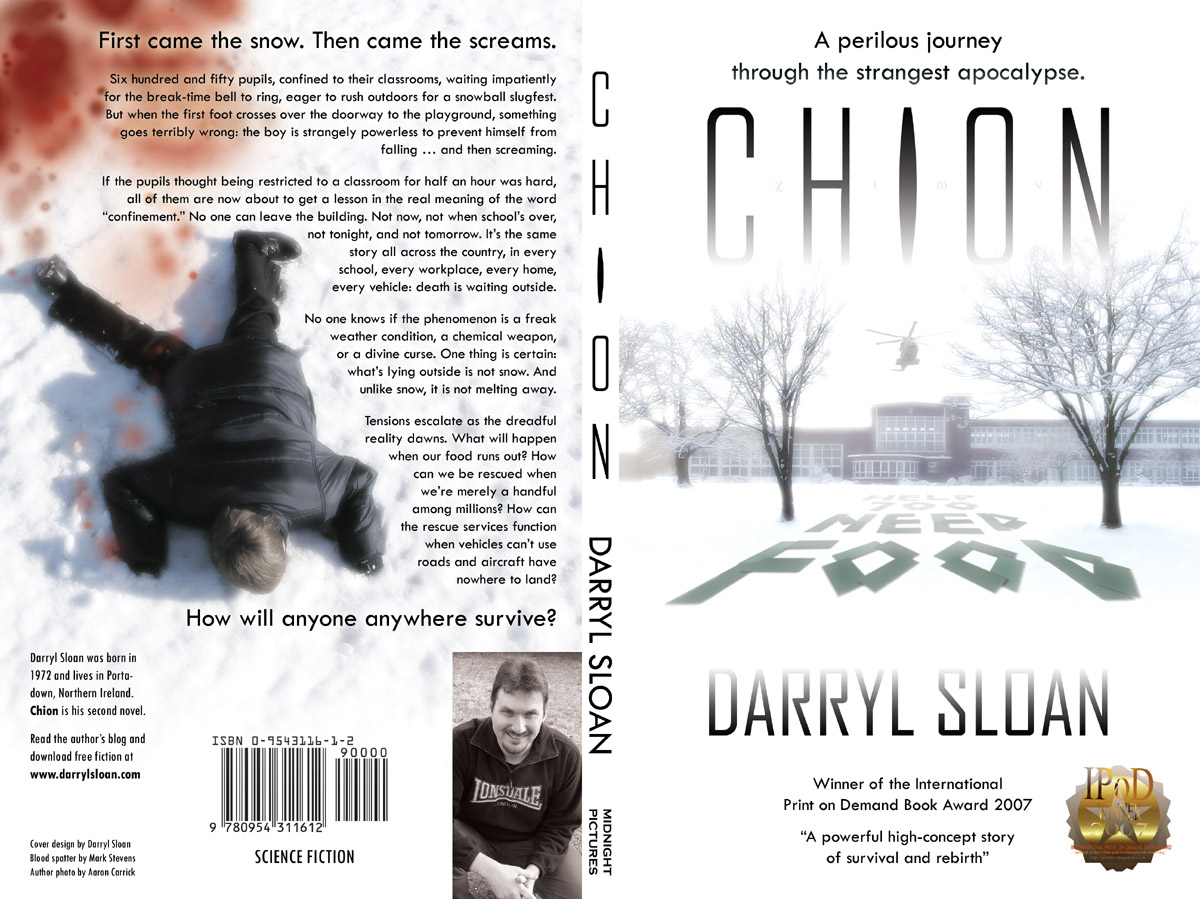 Chionophobia n. A fear of snow
Chionophobia n. A fear of snow
Chion is Northern Ireland based Darryl Sloan’s second self-published novel. As he did with his first novel, the 2002 release Ulterior, Darryl has set the story in the school where he works. Unlike Ulterior, Chion is a relatively short novel at around 40,000 words.
This time around, Darryl has tackled a post apocalyptic story. The device that sets up the plot – a deadly, adhesive snow covers the land – is, as far as I know, a unique entry in the genre. Post apocalyptic fiction holds a special place in Darryl’s heart as it was a post apocalyptic book that first sparked his interest in reading fiction.
Darryl Sloan: In my boyhood, I didn’t read for pleasure. It was a chore that I equated with homework, but that changed when I was thirteen. The class novel for English was Z For Zachariah by Robert O’Brien. In the story, a teenage girl survives a nuclear war by virtue of a strange weather phenomenon in the valley in which she lives. I was captivated with the story, and for the first time ever, I thought, “Hey, this reading lark is maybe not such a bad thing.” From then on, I was hooked.
Michael Reed: Any other post apocalyptic favourites that you could recommend?
DS: I love The Chrysalids and The Day of the Triffids by John Wyndham, The Tripods and The Death of Grass by John Christopher, The Folk of the Fringe by Orson Scott Card, and I Am Legend by Richard Matheson. All of those are decades old; I tend not to pay too much attention to what’s new and trendy in fiction.
MR: What about post apocalyptic stories in other media?
DS: My favourite post apocalyptic movie is ‘Mad Max II: The Road Warrior.” On the surface, it’s an action movie, but underneath it’s all about a broken man learning to find his place in the world again.
My favourite post apocalyptic TV show is “The Tripods.” On the surface it’s a boy’s cross-country adventure with alien tripod machines, but underneath it’s about the notion that everything everyone ever taught you about the world is wrong, that the world is essentially living in a state of mass hypnosis; you are alone, but it’s okay, because you’re awake and you know what needs to be done.
I also highly rate George Romero’s “Dawn of the Dead” and Terry Nation’s “The Survivors.” I thought the recent [British TV] remake of the latter was brilliant, to my surprise.
MR: The cover blurb of Chion poses a question — “How will you survive?”. By the end, I think that most readers will have asked themselves this question, because in Chion, there are no easy answers. Once the full effect of the disaster becomes apparent, survival depends on the result of some agonising decisions.
DS: I’m always fascinated by the grey areas of life, where our notions of right and wrong are put to the test and we face challenges and where there aren’t any easy answers.
MR: Do you think that you would make a good survivor in a post apocalyptic scenario?
DS: I think I would. First, it’s a big help if you’ve watched everything by Ray Mears! But more than that, you’ve got to have the sort of mind that can remain calm in a crisis and can see the big picture rather than just the danger right in front of you – to ask yourself not only where the next meal is going to come from, but how we’ll sustain ourselves indefinitely.
This was a big theme in Chion. Even the larger food supplies that everyone was clamouring over were merely postponing the inevitable. Most people were prepared to live in denial of what was coming, as long as they could see the next meal, when the real solution lay in facing up to the scale of the crisis and thinking outside the box.
MR: When you came up with the idea of the adhesive snow did you know from the start that you had hit upon a good idea?
DS: Yeah, I kind of did. I came up with the idea by asking myself if I could do something with weather that hadn’t already been done. But I had serious trouble getting “sticky snow” to work in a story. My first idea was to set it in the future on an alien world that mankind has colonised, where they don’t know what they’re in for during their first winter. But the story just wouldn’t come together.
Years later, whilst out walking in the snow one evening, I realised the solution was to set the story in the here and now. Before, I had been trying to think up some fancy future technology that I could employ as a means of defeating the snow, then I finally realised, “No. Forget make-believe technology. It happens now, in the present day. All you’ve got is what’s at your disposal, in whatever building your trapped in, and if you can’t use that to save yourself, then you’re gonna die.” Bingo! I knew I had found the right formula.”
MR: Reading your blog, you strike me as a bit of a loner. Do you think your interest in the genre stems from your personal philosophy and lifestyle?
DS: It’s true, I am a bit of a loner. I tend to have few friends, but close friends. I like my own company and hate crowds. I have always felt disconnected from society in general. I can remember often walking the streets late in the evening, when it was dark and no one else was around, listening to ominous moody soundtracks on my personal stereo and imagining I was living in a post apocalypse world. Call me weird.
I think that, on some level, I have always secretly liked the thought of living in a world where all the nonsense has been swept away. I don’t like the way the world works – our addiction to material wealth, for one thing. Wouldn’t it be nice to have a great big cataclysm come along and make us re-evaluate things, maybe force us to start living instead of just existing or pursuing vacuous goals?
MR: The back of the book specifies that this is juvenile fiction, and the story is told from the perspective of a school pupil. However, the reception that Chion has so far garnered on the web shows that it has been equally popular with adults.
DS: The teenage protagonist is a staple of young adult fiction, but Chion is much more mature than many books that would be classified as young adult. I’m not afraid to portray the world as I really see it, and I don’t believe in stuffing cotton wool into children’s ears.
I actually re-released Chion a couple of months ago with a brand new cover, and I decided to drop the “young adult” branding this time and classify it simply as “science fiction.”
(first cover below, new edition above)
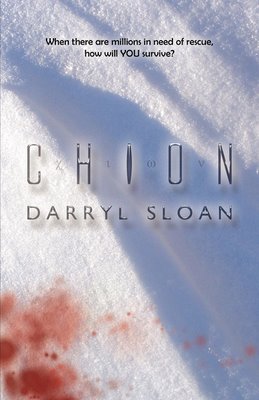 MR: Did that target group place limits on your writing and the plot of the book?
MR: Did that target group place limits on your writing and the plot of the book?
DS: Only marginally, and only because I knew I would be selling the book to quite a number of teenagers locally, via the school where I work. The last thing I wanted was a backlash from angry parents, but at the same time I wasn’t prepared to turn this into a Hardy Boys adventure. In practice, if you avoid foul language and gratuitous violence, few people will see anything to complain about.
MR: I know that you’re an IT technician in a school and this must give you an additional perspective on school life. What were your own school experiences like and how has this been reflected in Chion?
DS: I had a good school experience overall. I experienced a little bullying for being overweight, which is possibly one reason why I ended up becoming a geek (as in, someone with narrow, obsessive interests). Little did I know at the time, but being alienated by popular people was really the making of me. When you’ve already been rejected, then you don’t have to please anybody. Peer pressure has absolutely no effect on the geek. You develop your own particular interests and opinions, while the other kids are combing their hair in front of the mirror and obsessing over what others think of them.
I would love to relive my teenage years, but with all the knowledge and wisdom that I now possess, and writing fiction about teenage life can be a way to experience that.
Part of me loves the teenage mentality, and in some ways I feel like part of me is “stuck” in that period of my life. What I mean is, in some ways I haven’t changed since I was a teenager. I never married, I live on my own, and I’ve chosen a life that gives me as little admin and stress as possible. It’s the sort of life I had as a teenager. And maybe that’s why I love writing about teenagers – because I still relate so much to everything that was good about that time of my life. I enjoy telling stories about people who, by whatever means or experiences, beat the odds and become individuals.
MR: What attracted you to the short novel format, is it a more tempting proposition for a writer in terms of investment of time and effort?
DS: I’ve read countless 500 to 1000-page tomes, and I’ve forgotten so much from so many. Wells’ The Time Machine or Stevenson’s Jekyll & Hyde, are each about 80 pages and those two classics have stuck, as have many other short books. Quality over quantity.
MR: Did you find yourself having to omit anything?
DS: Nothing at all. I think I told every part of that story there was to tell. The larger story of how this sticky snow affected everyone was another story. Interestingly, someone wrote and submitted to me a companion story to Chion, which I thought was wonderful.
MR: Will the next Sloan novel be short form?
DS: I write by a pretty simple maxim: let a story find its own length. I won’t force what I write into a mould. The short novel format is largely ignored by the traditional publishing world, but it’s perfect for print-on-demand. Having a short novel means that I can sell it at a very cheap price. Although, I tend to think of 40,000 as a bare minimum of what I could ask anyone to purchase in book form.
An idea that tickles me is to put two short novels together, back-to-back, so that you finish one story when you reach the middle of the volume, then you flip the book upside down and start reading the other story from what would ordinarily have been the back cover. An old publisher called Ace Books used to do this, and it would be nice to resurrect the format.
I know there are people who love reading big books, but I tend to get sick of how much of my life they steal – unless they’re exceptionally good.
MR: I notice that the setting that you have chosen is based on your home town and the school in which you work. Have local people enjoyed it? Has it helped in terms of sales and publicity?
DS: Local people get a buzz out of the local setting, and it was probably instrumental in me getting more local sales.
MR: Was it helpful, from a writing perspective?
DS: You are restricted to keeping the geography of your local area accurate, which might throw a spanner in the works of something you want to do with your story. However, that consideration aside, as a writer I love to keep it local. It solidifies the story into something that you can almost fool yourself into thinking is a memory of something that really happened in your home town.
MR: You list Stephen King as an influence and he’s a notorious proponent of working without a plan. Getting back to your writing process, do you plan your work?
DS: I would say that I had a 95% framework for Chion worked out before I started writing it. That other 5% was a little blurry, but I reckoned I could put the building blocks together when I came up against them. I know some writers believe in throwing characters into a situation and simply seeing how it plays out. In my experience that leads to dead-ends and stories that never get finished. I believe in doing a lot of planning. Most of the story has to sit in my head like the memory of a movie I’ve seen before I’ll begin writing it.
MR: Do you work to a schedule?
DS: I try to discipline myself and write something every day. The hard part is getting started each day. I find that if I can get a couple of sentences out, I’ll usually end up with a thousand words done. But I’m not as disciplined as I would like to be. Chion could have been written in forty days, but it took over half a year. That said, there were times when I hit a few roadblocks with the story, and felt I had to pause for a week or two. That thinking time did the finished product a world of good.
MR: Did you undertake much research before writing Chion?
DS: I tend to write about things that I know intimately, but yes I had to do a little research. I learnt a little about how glue actually works, and this added a more believable scientific edge to the story.
MR: Did you make an effort to find a conventional publisher?
DS: None whatsoever. I had such a good experience self-publishing my previous novel, Ulterior, that I had no hesitation in doing it all again. Whilst it would be wonderful to have the mega-distribution that comes with being traditionally published, I don’t have the heart to play the “acceptance” game, when there’s a perfectly good outlet already available to be exploited.
You’ll find some self-published authors criticising self-publishing, but that’s only because they haven’t been able to make it work, which could be down to any number of pitfalls: a terrible book that can’t get good reviews, an uninspiring cover design that fails to attract, poor decisions on pricing and marketing.
MR: Do you feel that releasing a free e-book edition of your book has been a success?
DS: Very successful, but that depends on how you define that success. I can’t prove that I gained a single extra sale as a result of the free e-book, but I can say that the sales haven’t declined in any way, so it’s fair to say there has been no down side. What I have gained – and this was the main point in doing it – are a whole bunch of additional readers, the majority of whom probably weren’t planning on buying the book anyway. Selling a copy of the book might get me £1.50 profit, but the value of creating a fan is priceless.
Stephen King sells because everyone knows who Stephen King is. If I want to increase my readership, then I need to be better known. I need to invest a little in the future and not be so concerned with squeezing every penny I can out of my present labours.
MR: What is your software setup?
DS: I use Microsoft Word for writing, an old copy of Adobe Pagemaker 7 for laying out the book interior, Adobe Reader Pro for creating PDF files (this is the format required by professional printing firms), and Adobe Photoshop 7 to design the cover.
MR: What was the procedure to create the artwork for the book?
DS: Lightning Source (the POD printing firm that most POD publishers use) actually make it very easy. They provide a cover template generator. All you have to do is key-in the quantity of pages and the ISBN number (which you purchase from Whitakers in the UK) and their system generates a Photoshop-ready template for the cover, with the spine marked out and the barcode in place.
The cover design itself relies on how good you are with Photoshop. I’m not much of a computer graphics artist when I work from scratch, but I work well with some digital photos as source material. Several digital photos and various effects went into the design of Chion.
MR: Looking back, was your investment in Chion worth it?
DS: Absolutely. Monetarily, the ratio of profit to labour would make a businessman cry, but this was never a money game to me. Importantly, I don’t lose money — and I do make a little. I just find it a joy to share something I’ve written with an audience that wants to read it. Every sale is special. When I first published Chion, I had the personal target of 500 sales before I would allow myself to call it a success. I achieved than in two years, and the novel is presently selling stronger than it was in the beginning.
MR: Any chance of a follow up to Chion?
DS: Yes. I have a strong idea for a direct sequel. Hopefully it won’t take years for it to come together in my mind.
MR: Have you got another novel in the works at the moment?
DS: No. I’ve written quite a few short stories over the years, so I’m toying with the idea of bringing out a collection, possibly headed by a novella. I am in the early stages of writing a non-fiction book at the moment, although some might consider it fiction, as it’s on the subject of telekinesis! Yes, I’m quite serious.
In addition, I have the rough framework for a couple of post apocalyptic novels in my head.
I tend not to worry too much about productivity as a writer. I prefer to write only my very best rather than write a lot. I think there were five years between writing Ulterior and writing Chion and it could be the same again.
MR: Given the reception that Chion has received, will you be attempting to work with a conventional publisher for the next project?
DS: No, I think I’m going to just keep doing what I’m doing. If I get noticed by an agent or publisher, great, but I’m not going out of my way to play that game. Frank Herbert’s Dune was rejected by over twenty publishers before finally being accepted by a small one. That’s “the greatest science fiction novel of all time,” as some would say. And what does that say about the publishing industry? It’s more like a lottery! Stuff that.
Darryl Sloan is a writer of science fiction and horror. He has written two novels. Visit his blog to find out what he is working on and thinking about at the moment.
Michael Reed is a freelance writer, writing for websites and magazines. Check out his website to find out about his latest projects.
Get an Editorial Review | Get Amazon Sales & Reviews | Get Edited | Publish Your Book | Enter the SPR Book Awards | Other Marketing Services









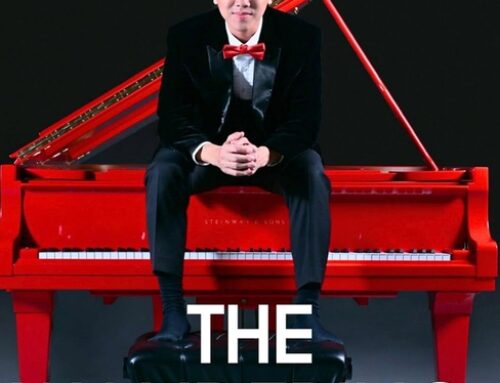


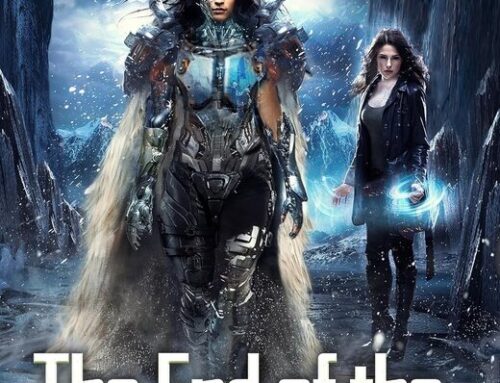
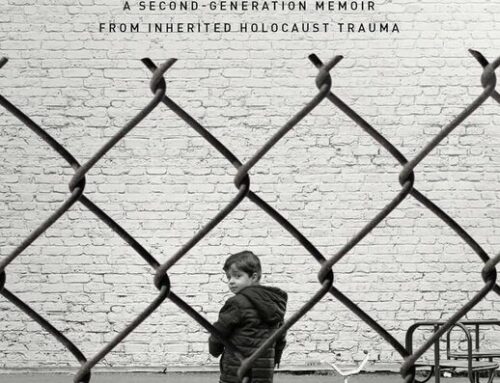


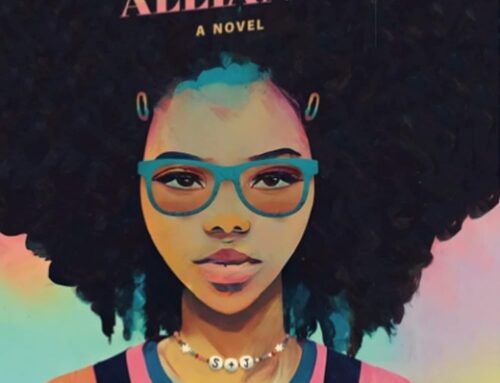
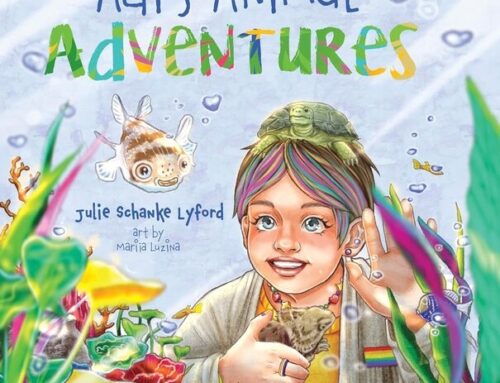
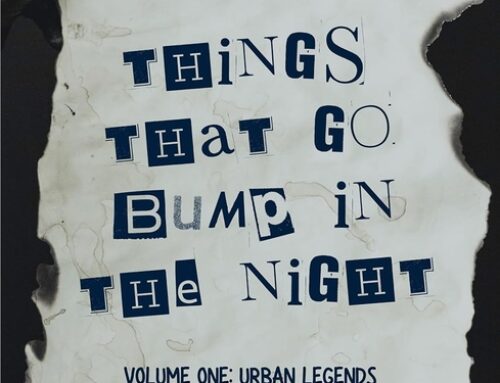
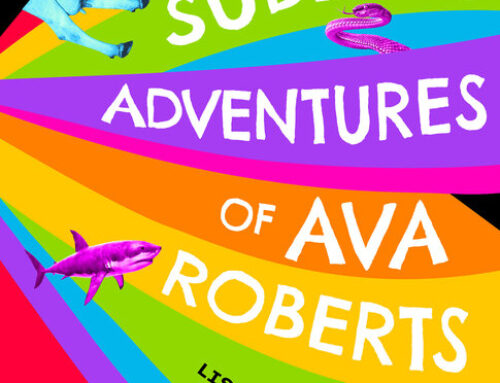
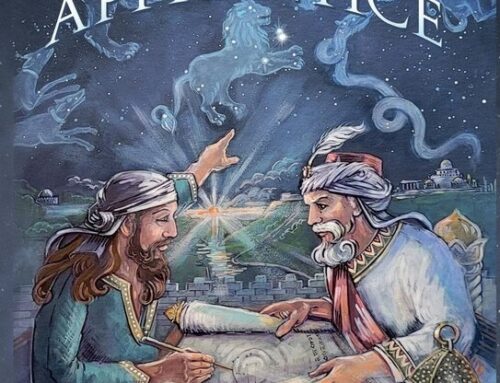

Leave A Comment